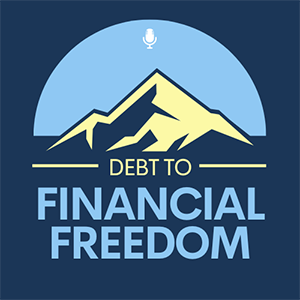When taking out a mortgage, one of the most important decisions you’ll make is choosing between a fixed or variable interest rate. Both options have their pros and cons, and understanding them can help you make an informed decision that aligns with your financial goals and risk tolerance. In this article, we’ll discuss the advantages and disadvantages of each type of interest rate to help you make the right choice.
Also to note that as your broker, I guide my clients through the intricacies of their loan options based on their unique situation. Everyone is different and there is no ‘one size fits all’ solution when it comes to loans.
Fixed interest rates
A fixed interest rate remains the same throughout the term of your mortgage, typically ranging from 1 to 5 years. Here are the pros and cons of a fixed interest rate:
Pros:
Certainty: With a fixed interest rate, you know exactly what your mortgage repayments will be for the entire fixed term of your loan (or the part of it that is fixed). This gives you greater financial certainty and makes it easier to plan and budget for other expenses.
Protection from rate hikes: If interest rates rise during the term of your mortgage, your repayments will not be affected as you are locked in at the agreed rate, for that period. This can provide peace of mind and help you avoid any unexpected increases in repayments.
Easier to manage: Fixed interest rates are generally easier to manage as they provide more stability in your money management and financial planning, giving you a sense of financial security and predictability.
Cons:
Higher rates: Fixed interest rates are usually higher than variable interest rates, meaning you could end up paying more in interest over the life of your loan. This is because you are paying for the certainty and stability of having a fixed rate.
Penalties for early repayment: Many fixed rate mortgages come with penalties if you repay your loan early. This can be a disadvantage if you plan to sell your property or refinance your mortgage before the end of the fixed rate term.
Limited flexibility: Fixed interest rates offer little flexibility in terms of repayment options, as you cannot adjust your repayments to take advantage of changes in interest rates or your financial situation.
- Offset Accounts: They are usually on available to be linked to Variable rate loans and not Fixed loans
Variable interest rates
A variable interest rate can go up or down over the term of your mortgage, depending on changes in the Reserve Bank of Australia’s official cash rate. As of now (April 2023), we have endured 10 consecutive rate increase, with more predicted over the next 18 months. When rates go up, your mortgage repayments increase accordingly (and when rates decline, so do your repayments).
Here are the pros and cons of a variable interest rate:
Pros:
Lower rates: Variable interest rates are generally lower than fixed interest rates, meaning you could save money on interest over the life of your loan. This is because you are taking on more risk by not having the stability of a fixed rate.
Greater flexibility: Variable interest rates offer greater flexibility in terms of repayment options, allowing you to adjust your repayments to take advantage of changes in interest rates or your financial situation.
Potential for savings: If interest rates fall during the term of your mortgage, your repayments will also fall, potentially saving you money on interest payments. In fact, I advise my clients to keep paying the same amount, even if their rates rise and they can manage it in their budget because it will help them to pay their loan off quicker.
Cons:
Uncertainty: With a variable interest rate, your mortgage repayments can go up or down depending on changes in interest rates. This makes it harder to plan and budget for your expenses, and can cause financial stress if your repayments increase unexpectedly, as we are currently experiencing in Australia.
Risk of rate hikes: If interest rates rise during the term of your mortgage, your repayments will also increase, potentially making your mortgage more expensive and harder to manage.
More complex to manage: Variable interest rates can be more complex to manage than fixed interest rates, as you need to keep up-to-date with changes in interest rates and their impact on your mortgage repayments.
Which one should you choose?
Choosing between a fixed or variable interest rate ultimately depends on your financial goals and risk tolerance. If you prefer certainty and stability in your mortgage repayments, a fixed interest rate may be the better option. However, if you are willing to take on more risk in exchange for potential savings and greater flexibility, a variable interest rate may be more suitable.
When making your decision, it’s important to consider your current financial situation as well as any changes that may occur in the future. For example, if you have a steady income and are planning to stay in your property for a long time, a fixed interest rate may provide greater peace of mind and predictability. On the other hand, if you have a variable income or anticipate changes in interest rates, a variable interest rate may be a better option.
It’s also worth considering the current interest rate environment and any future trends. If interest rates are low and are expected to remain low for the foreseeable future, a variable interest rate may be a more attractive option. However, if interest rates are already high or are expected to rise, a fixed interest rate may be more suitable.
Ultimately, the decision between a fixed or variable interest rate comes down to your personal preference, risk tolerance, financial goals and situation. It’s important to do your research and speak with a mortgage broker or financial advisor who can help you make an informed decision that aligns with your financial goals and objectives.
In conclusion, both fixed and variable interest rates have their pros and cons, and there is no one-size-fits-all solution. It’s important to carefully consider your options and choose the interest rate that best aligns with your financial goals and risk tolerance. By doing so, you can make the most of your mortgage and ensure that your repayments are manageable and affordable over the long term.
If you’re weighing up the pros and cons of fixed vs variable interest rates for your home loan, I hope you found these insider tips helpful. Navigating the world of mortgages can be overwhelming, but with the right guidance and support, you can make an informed decision that aligns with your financial goals. If you’re interested in getting personalised credit advice, feel free to book a free call with me to discuss your options further. Good luck on your home buying journey!







